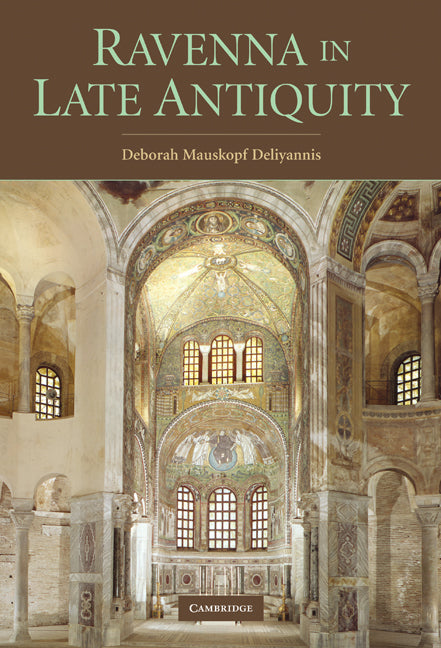Freshly Printed - allow 8 days lead
Couldn't load pickup availability
Ravenna in Late Antiquity
A comprehensive survey of Ravenna's history and monuments in late antiquity, including discussions of scholarly controversies, archaeological discoveries, and interpretations of art works.
Deborah Mauskopf Deliyannis (Author)
9780521836722, Cambridge University Press
Hardback, published 29 January 2010
464 pages, 103 b/w illus. 15 colour illus. 7 maps 7 tables
26.1 x 18.5 x 2.8 cm, 1.2 kg
'Deliyannis succeeds in her purpose to a commendable extent. Her work is scholarly, lucid, balanced and well organized throughout … The author concentrates on the great monuments of the city, offering not just meticulous and informed descriptions, but also judicious and knowledgeable examination of the context of each … This sensitive and informed treatment of the monuments combined with an impressive knowledge of secondary literature makes for a volume which should reinforce detailed understanding of an unparalleled survival from the antique world, and encourage more scholarly interest among both historians and art historians.' T. S. Brown, Early Medieval Europe
Ravenna was one of the most important cities of late antique Europe. Between 400 and 751 AD, it was the residence of western Roman emperors, Ostrogothic kings, and Byzantine governors of Italy, while its bishops and archbishops ranked second only to the popes. During this 350-year period, the city was progressively enlarged and enriched by remarkable works of art and architecture, many of which still survive today. Thus, Ravenna and its monuments are of critical importance to historians and art historians of the late ancient world. This book provides a comprehensive survey of Ravenna's history and monuments in late antiquity, including discussions of scholarly controversies, archaeological discoveries, and interpretations of art works. A synthesis of the voluminous literature on this topic, this volume provides an English-language entry point for the study of this fascinating city.
1. Introduction
2. Roman Ravenna
3. Ravenna and the western emperors 400–489 AD
4. Ravenna the capital of the Ostrogothic kingdom
5. Religion in Ostrogothic Ravenna
6. Ravenna's early Byzantine period: AD 540–600
7. Ravenna capital: 600–850.
Subject Areas: Classical Greek & Roman archaeology [HDDK], Ancient history: to c 500 CE [HBLA], History of architecture [AMX], History of art: ancient & classical art,BCE to c 500 CE [ACG]


